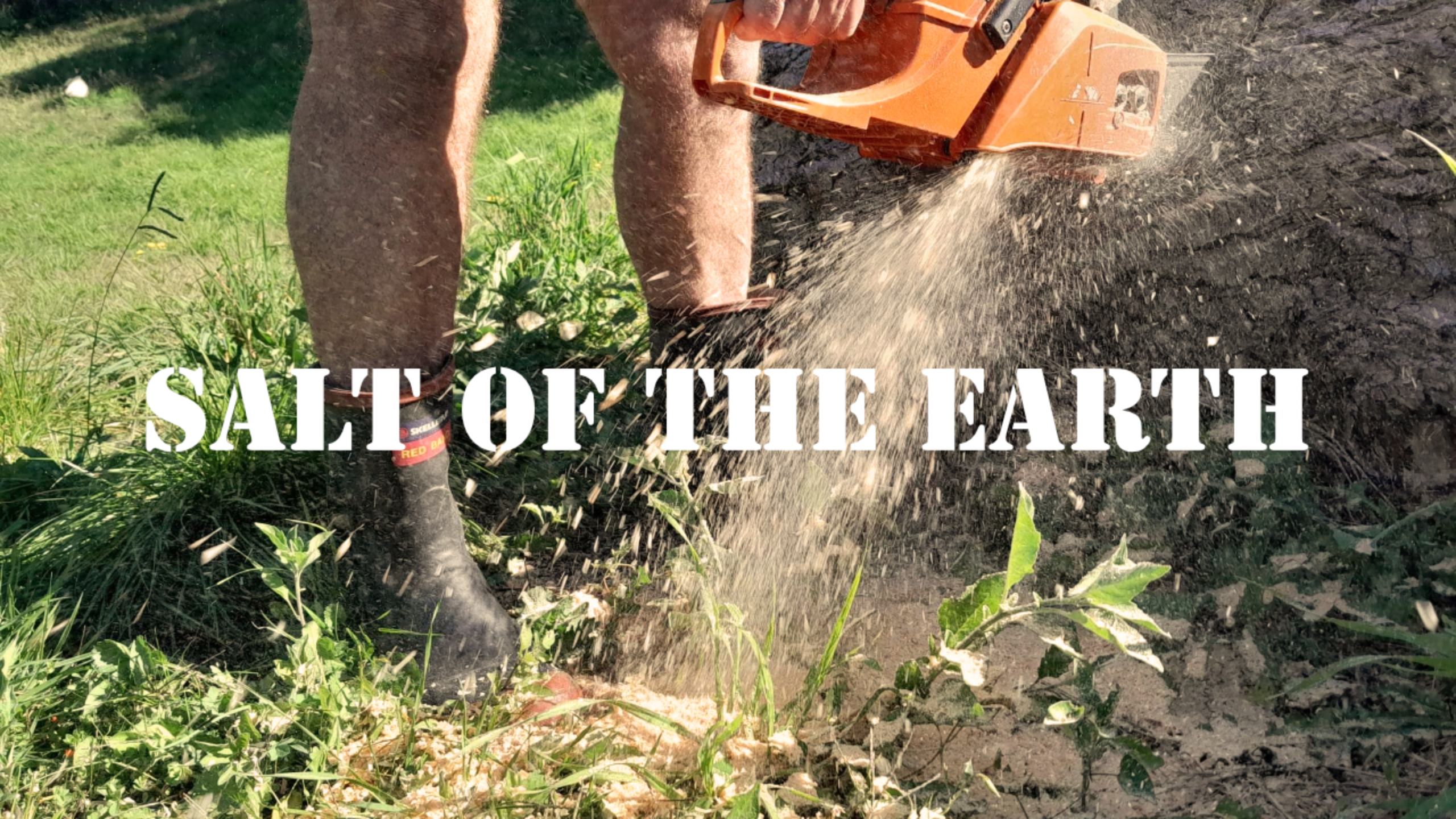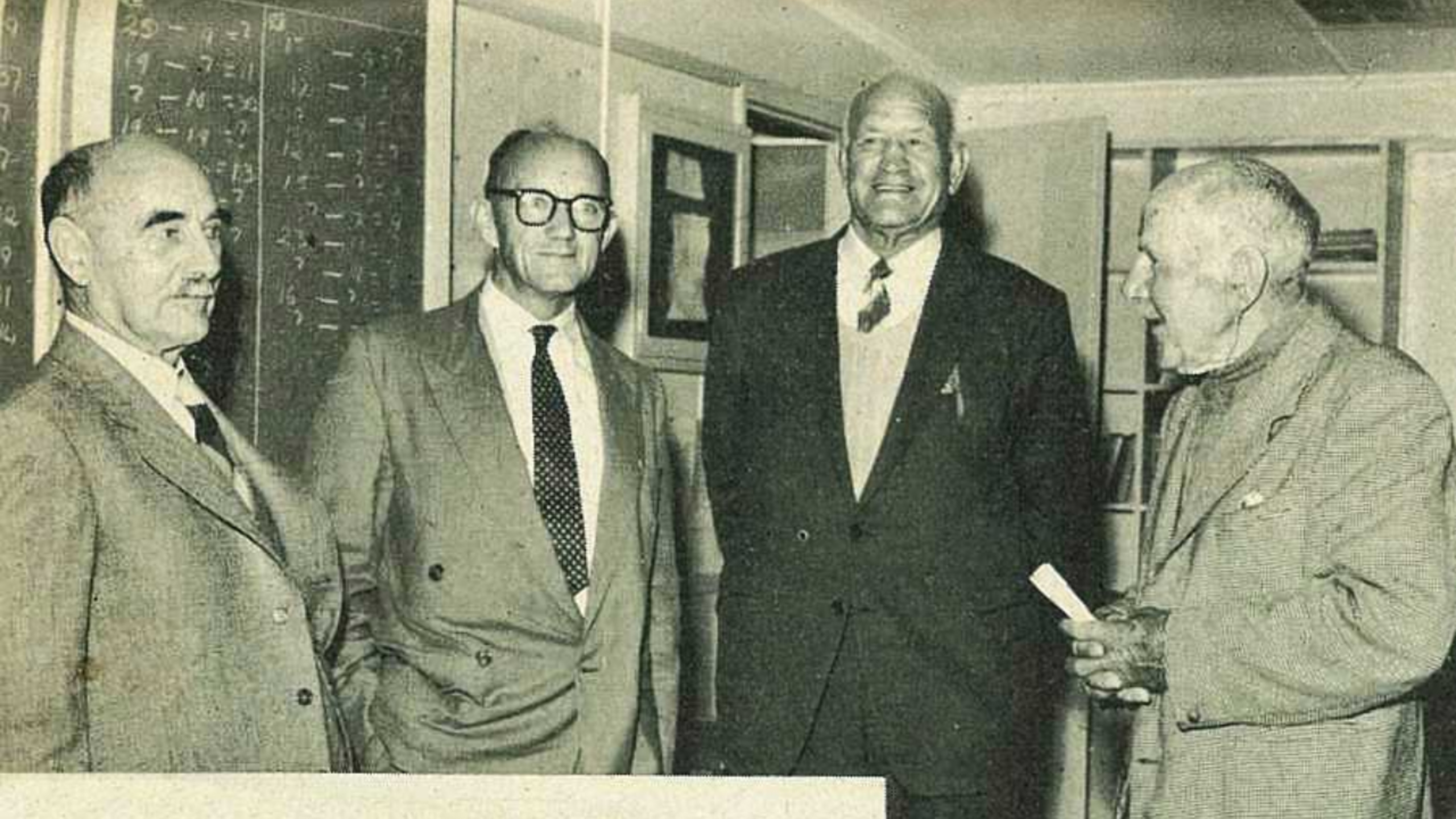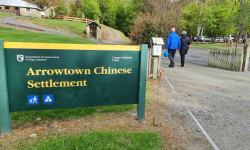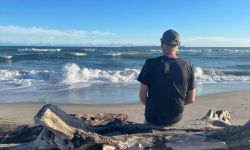
Columnist Kevin Robertson, or 'Kev the Rev' as some people call him, is a gumboot-wearing-chainsaw-wielding-farm-hack and pastor-of-people at Te Awamutu Baptist Church in the beautiful Waikato region. Salt of the earth: it's what Jesus says we are. Paul the Apostle encourages us to season our conversations with salt. This column is about that: telling stories of salty people, inspiring us to imagine something we haven't thought of before, or helping us taste something differently. Porridge is better with salt!
Attending Baptist National Hui isn't really my thing. So many Baptists in one place! But my wife sent me last November. Not sure why she's so keen to see me gone for a few days. It's not that I don't enjoy them (hui), but rather there's always so much that can be done back in the church. I also have a tendency to critique everything – in Carey Baptist College terms, is this a strength or a weakness?
There's always a highlight at Hui, and this last time for me, it was Craig Vernall's in-depth exegesis of Luke 15 – the lost chapter: the lost sheep, the lost coin and the lost son. Drawing from the depth of his theological training, he beautifully explained and portrayed that the verses covering the 'celebration' were far in excess compared to the verses of the 'lost'. Oh, how often we look towards what is lost rather than to the celebrations we are invited into.
This was my experience during the address of one of the keynote speakers at Hui. Matthew Renata eloquently and enthusiastically shared about the New Thing that God's spirit was doing among Māori. I rejoice with him! To do so, he wanted to go back – back to the history of Māori and their engagement with God and the church. There were highlights shared – celebration! And there was 'lost-ness' lamented, and rightfully so. It was in the midst of this painfully felt lament that I found celebration! Now please hear me... take a deep breath… I'm not celebrating the pain, the loss or the wrong, but sometimes there are small things to celebrate in the midst of pain and suffering.
During the feedback session after Matt's address, the question was asked, "What can we do now? How can we respond now?" Someone on the far side (from where I was parked) gave a great answer. He said, "We must have the right narrative. There is the historical narrative and the actual narrative, and the actual narrative is the right one" (my paraphrase). Now that sounds all good and dandy, but it still isn't the full narrative! Sometimes in the mists of history, there is the 'lost' narrative, and this very unknown 'lost' narrative can cause the heart to celebrate in the midst of injustice and pain. At times we all hurt because of the injustice of the past – our history. I sometimes get hurt now. As I get older, with over 40 plus years of ministry experience, I have heard the lament from Māori because of the injustice and pain of colonialization and rightfully so. But within the church circles, I've also witnessed Pākehā apologizing on behalf of and for their tupuna's actions. Pākehā have asked for forgiveness, and there has been much grace from tangata whenua, and they have forgiven. But sadly, at times, it seems that the narrative does not match the forgiveness given. Is there still guilt and blame for the forgiven? Why, at times, do I feel like I'm being held responsible (again) for the past when on behalf of the actions of the past, I have asked for forgiveness? Anyway, back to the small celebration in the midst of lament.
There is much published about the integration policies and disrespect by the Pākehā towards Māori in the education system. It's well-documented. It's true. But is there a hidden narrative which is a light in the darkness? Was there anything we could celebrate? Sometimes it seems that the rightful judgment dished out towards colonialization and its negative effect was universal. Were there any voices supporting Māori? Yes! Hello Grandpa!
My Grandpa! (Second from the left in the photo below: Kenneth I Robertson.)

Grandpa was a deeply religious man, a Presbyterian, but we won't hold that against him. He was 'proper' in every way and always a gentleman. He was educated and moved up the corporate ladder in the education system. He was a school inspector, think 'a one-man band ERO'! And then, in the mid-1950s to early 1960s, he held the role of "Officer for Māori Education". Here we find the man that I'm so proud of and who is my tupuna. Here is a man who spoke for the Māori, advocated for them and continually pressed the case for Te Reo and Māori education. He believed that Māori culture was the birthright of every Māori child in the education system. He argued for the inclusion of Māori legends, arts and crafts, poi, waiata, and haka! He compelled the case for Māori history, legends, song and dance as necessary for the personal development of Māori! And I celebrate his efforts even in a system that did not embrace his ideas. Is this just hearsay from a Pākehā family who wants to believe the oral stories passed down about an ancestor? Actually, some of Grandpa's articles can be found in the National Library!
So is there a hidden narrative? A silent narrative that challenges the norm? One that we can celebrate! And maybe, as Craig Vernall said, we need to shift our narrative to acknowledge the 'loss' but to major on the 'celebration! I'm not talking here about the things of the past but rather the 'loss' we are feeling for whatever reason – is there something to celebrate even if we find ourselves in a time of loss, pain and suffering?
Photos: Header image: Kevin's legs with his gumboots and chainsaw. Four men: supplied by Kevin Robertson.



Good Job old mate.